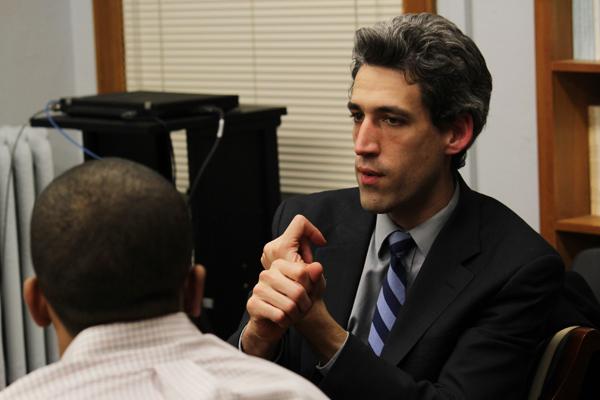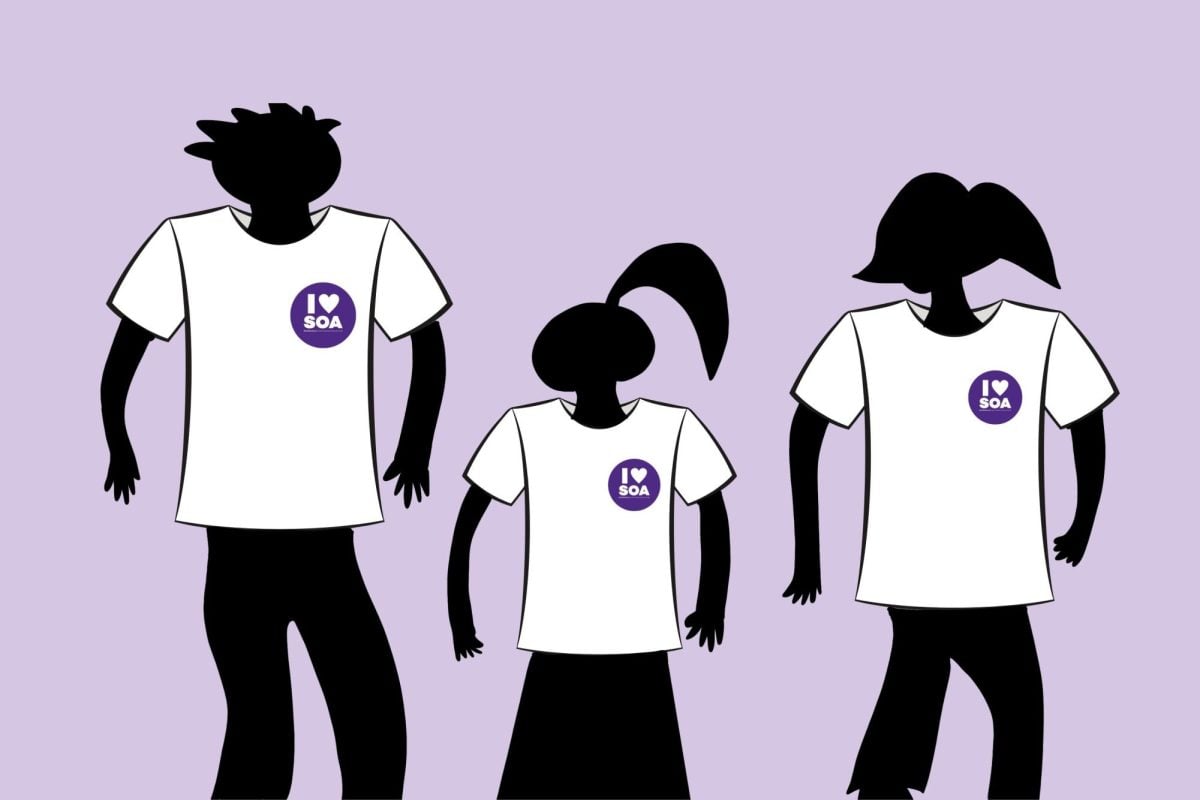
“Things suck.”
That’s what State Sen. Daniel Biss (D-Evanston) repeated during a round table discussion Monday night.
The Northwestern University Political Union invited Biss to join a group of 16 students for the discussion in the Roberta Buffett Center. Biss, who discussed the current political climate regarding recent developments such as gun control and marriage equality, also tackled what he considered a “catastrophic wreck”: the Illinois state budget.
“We’re sitting on nearly a hundred billion dollars of debt,” Biss said. “Because of that, we’re shredding the network of services that the state should, and needs to, provide that citizens rely on while having to watch their taxes go up and the pile of bills increase.”
He said a big portion of the problem came from pension funds. Under a pension system, an employee regularly pays a percentage of their salary to the employer, who must then provide monetary installments usually upon the employee’s retirement. Unfortunately, because it is difficult to predict various factors like mortality or investment return rates, employers are often unwilling or unable to fulfill their responsibilities, Biss said.
“Constitutionally, it’s a contract,” Biss said. “We keep our end of the bargain, you keep yours.”
About 20 percent of the Illinois state budget is allotted for making up and keeping up with pension funds, he said.
“The state has mismanaged its retirement systems for many decades,” Biss said. “The amount we dedicate (to pension) increases every year. It went from $4.8 billion to $5.7 billion last year. This year, they tell us it’s $6.7 billion.”
Biss said the disproportionately large percent of the budget that goes to pension results in cuts in educational grants and health coverage, including $1.6 billion out of Medicaid. Although the effects may be as simple as only being able to buy one pair of glasses as opposed to two per year, some might be forced to choose four prescriptions out of the ten they need, he explained.
“We’ve had to make some very real, very human, tough decisions,” Biss said.
And although the Illinois Senate last week approved an expansion plan for health care that will make up for those cuts, there are still non-Medicaid, specialized medical funds that cannot be saved, he said.
“The budget problem applies to any major at Northwestern,” NUPU director of development Rachel Vrabec said. “It’s good to be aware of the huge budget crisis that’s going on right now and how that might affect student loans.”
The Weinberg senior said she hoped Biss’ conversation with the students will make them realize the impact of the financial situation.
“It’s part our mission to bring local elected officials to campus so that students have a chance to engage with them,” said NUPU co-president Steven Monacelli, a Communication senior and former Daily staffer. “It has nothing to do with whether they’re Republican or Democrat, but that they’re our elected officials.”
Biss agreed that one of the key solutions to resolving a catalytic problem like the state budget was informing constituents about why the Illinois government is in such shape and what kind of sacrifices both politicians and residents should have to expect to make.
“The state government is weird because it’s intermediate as an entity,” he said. “It’s not around the corner, but it’s there, it’s sort of abstract and big. All of Illinois has the sense that it sucks, but they have no idea why.”


















